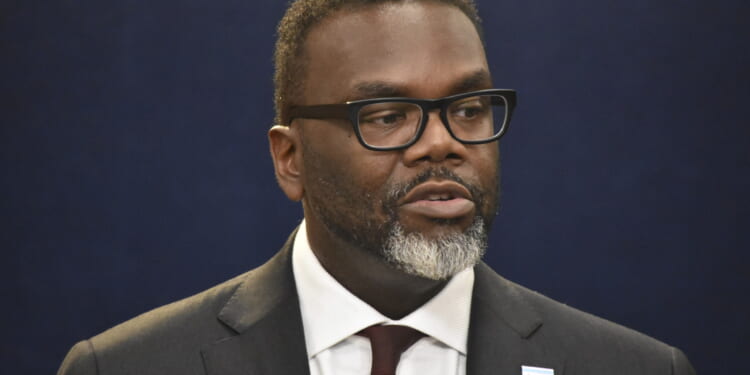Chicago’s budget has grown much faster than inflation, leaving taxpayers to endure higher costs without receiving better services. Implementing a spending cap linked to inflation could have kept costs under control, helping prevent future deficits
Chicago Mayor Brandon Johnson describes the city’s financial crisis as a revenue problem, claiming the city doesn’t tax enough to fund its obligations. Chicago doesn’t need new taxes; it needs to stop swiping the credit card.
Since 2019, Chicago’s spending has grown by 62%, far outpacing inflation and population growth. If spending had been tied to inflation instead, costs would have risen by less than half as much, sparing taxpayers from looming hikes and growing debt. It would also help keep growth sustainable and restore long-term fiscal stability.
Had such a cap been implemented to the corporate fund in 2019, Chicago could have saved $600 million, roughly 12.5% of today’s budget. That difference represents real money that could have stayed in taxpayers’ pockets.
A major driver of this recent spending surge was the city’s mismanagement of temporary federal aid during the pandemic. Instead of using the funds responsibly, such as paying down debt or funding pensions, the city spent much of the cash on ongoing programs and adding 8,000 new CPS hires – even as enrollment declined by 30,000 students since 2020. Now that the federal transfers have dried up, taxpayers will be on the hook for permanent commitments built on temporary money.
This kind of short-sighted budgeting creates long-term problems. Once new spending becomes entrenched, it is rarely rolled back, even when the revenue that supported it is gone. This results in higher taxes or more debt.
Chicagoans already face some of the highest taxes in the nation. The average homeowner pays an effective property tax rate of 1.98%, one of the highest in the nation. For commercial properties, the tax rate is 4.01%, double the national average. On top of that, the combined sales tax is 10.25%, the third highest of any major city, only behind Seattle and Tacoma.
As a result, the city is losing residents and businesses, leaving an ever-shrinking base to tax. To make up for lost revenue, the city borrows more money, piling debt and interest onto taxpayers.
When budgets grow faster than economic growth, residents pay more than the city can truly afford, and more than households themselves are able to keep up with. A good first step to prevent the budget from spiraling further out of control, without cutting essential services, is to implement a spending cap tied to inflation.
The standard measure of inflation in cities is the consumer price index for all urban consumers, which tracks the prices households pay for goods and services over time in major American cities. A spending ceiling linked to the 10-year average urban inflation is an attractive policy because it wouldn’t cut existing services – it would simply lock the current budget and adjust for future price changes.
This means the city could continue with its current commitments, but any new spending would have to be pulled from other areas. Then the budget only grows as costs rise, keeping city finances in line with what taxpayers face in their own lives.
Some governments have already implemented similar spending limits. For example, Colorado’s Taxpayer Bill of Rights allows localities to cap annual spending growth, tying it to inflation plus population growth, and refunding any excess to taxpayers. Since Chicago’s population has been stagnant for decades, a simple inflation-based cap would be the most practical approach.
If Chicago had adopted a spending cap in 2019 tied to urban inflation, the city would have cumulatively saved $3.45 billion by 2025. Illinois Policy Institute’s projections estimate such a cap could save an additional $2.35 billion through 2028, reducing future deficits. These savings would provide fiscal breathing room to rebuild reserves and ease pressure on taxpayers.
With real constraints, Chicago could align its finances with reality. A budget ceiling alone won’t solve everything, of course. Fixing Chicago’s fiscal crisis will require broader reforms, such as pension reform, prioritizing core spending, restraining new debt and increasing economic growth. These recommendations are detailed in Illinois Policy Institute’s report, Chicago Forward 2026.










